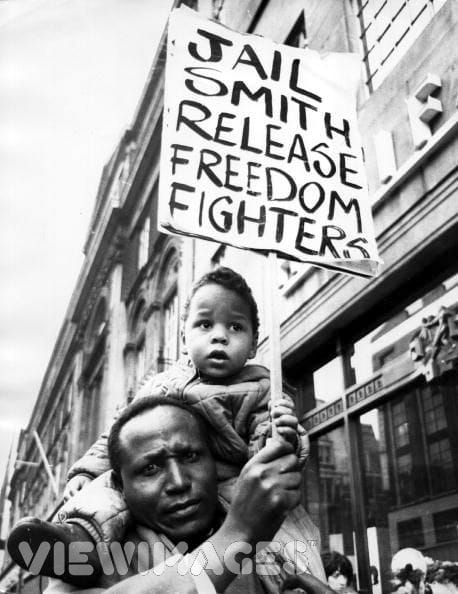Marta Harnecker: `Socialism is a search for a fully democratic society'

Marta Harnecker interviewed by Edwin Herrera
Salinas, for the Bolivian newspaper La Razón. Translation by MRZine's
Yoshie Furuhashi. Posted at Links International Journal of Socialist Renewal with permission
Download Daniel Bensaïd's `Revolutionary Strategy Today'
By Liam Mac Uaid
March 31, 2010 -- MacUaid -- The International Institute for Research and
Education (IIRE) is an
Amsterdam-based centre providing activists and scholars around the world
with opportunities for research and education. It is offering a  free download of the late Daniel
Bensaïd’s Revolutionary Strategy Today.
free download of the late Daniel
Bensaïd’s Revolutionary Strategy Today.
Since the rise of capitalism, socialists have faced certain deep-seated obstacles: the hostility of the bourgeois state, the fitful curve of proletarian class-consciousness and the inertia or active opposition of apparatuses originally built by the workers for struggle.
Indonesia: Working People's Association's (PRP) goal is a new workers' party

March 31, 2010 -- Socialist Alliance national convenor Peter Boyle interviews Ignatius Mahendra Kusumawardhana, the international relations officer for the Working People's Association (Perhimpunian Rakyat Pekerja – PRP) of Indonesia, who was in Australia to speak at Socialist Alternative's "Marxism 2010" conference in Melbourne, April 2-5, 2010.
In 2003, Mahendra was imprisoned for two years for “insulting the government” of President Megawati Sukarnoputri. He was a member of the People's Democratic Party (PRD) at the time of his arrest.
Over the last six months, the PRP has initiated a number of joint statements issued by left groups from various political traditions in the Asia-Pacific region.
* * *
Namibia: Reflections on 20 years after independence

By Jade McClune, Windhoek
March 23, 2010 -- Twenty years ago, at Namibia's first independence celebrations on March 21, 1990, many people would have shared the hopes and the euphoria of the moment. People thought that something good would come to us if we kept our peace and relinquished all the power to "the few who knew". Now that terrible hangover is wearing off and time has enforced a certain sobriety on us: the brutish reality of a rapidly falling life expectancy, unprecedented epidemic crises, poverty, vast malnutrition, a ruined education system and chronic mass unemployment, is inescapable.
Yes, there have been achievements: for some people with connections or capital or a lot of luck, life has improved as they moved into the other side of town, but for most citizens life has become meaner and shorter. There is a breakdown of all social and municipal services and a growing chauvinistic brutishness about the bureaucracy. At the same time we are witnessing a new desperate scramble for Africa's mineral wealth, that will make the evils of 19th century colonialism look pleasant in comparison. So let it be said, the struggle is not over.
After Copenhagen: Can we save the world? Video: Is the climate sick of us?
* * *
Fourth International's response to Chavez’s call to found a Fifth Socialist International
[The following is an excerpt from the "Role and tasks of the Fourth International", a report adopted by the Fourth International at its 16th World Congress held in Belgium in February 2010. Click here for the full report.]
Chavez’s call to found a Fifth International poses other questions about its origins, its framework, that is to say, its viability. The Fourth International declares that it is willing to participate in the debates and preparatory meetings that may be organised. We will contribute our historic gains and our vision about what a new international and its programatic foundations could be. A genuine new international can only be born if its members share a program, an ability to intervene in society, a democratic, pluralist form of functioning, as well as clear independence from governments in order to break with capitalism.
By Laurent Carasso
February 2010 -- This report will not attempt a detailed survey of the world but will try to stress what is most significant, what, in our view, should come under a common understanding of events and tasks. On many regional situations, the comrades will broadly enrich the discussion through their interventions.
(I) The world situation is marked by crisis
For the first time in history, this crisis is located is explained by capitalist globalisation. No territory is immune. All the economic, social and political factors are interrelated worldwide. The economic crisis is not a conjunctural crisis. This is a systemic, structural crisis: this is the most serious crisis since 1929. The United States has lost 35% of its financial wealth and the Euro zone 25%. And, when governments speak of “emerging from crisis” we do not agree. There may be short-term recoveries, related to policies in support of activity in this or that country, but the countries of the centre -- the USA and Europe -- are not emerging from crisis. The explosion of public debt in southern Europe -- in Greece, Spain -- and the banking and financial uncertainty demonstrate the instability of the situation and a new phase of the crisis, at least in Europe.
The crisis is not over!
Zimbabwe: Despite Mugabe's opportunism, radical land reform is necessary

Video: Eyewitness report of the revolution in Nepal
March 26, 2010 -- Australian Socialist Alliance member Ben Peterson speaks in Wellington, New Zealand, during his seven-day tour of New Zealand. More below. Videos by Socialist Worker New Zealand.
The Flame, March 2010 -- Green Left Weekly's Arabic-language supplement
